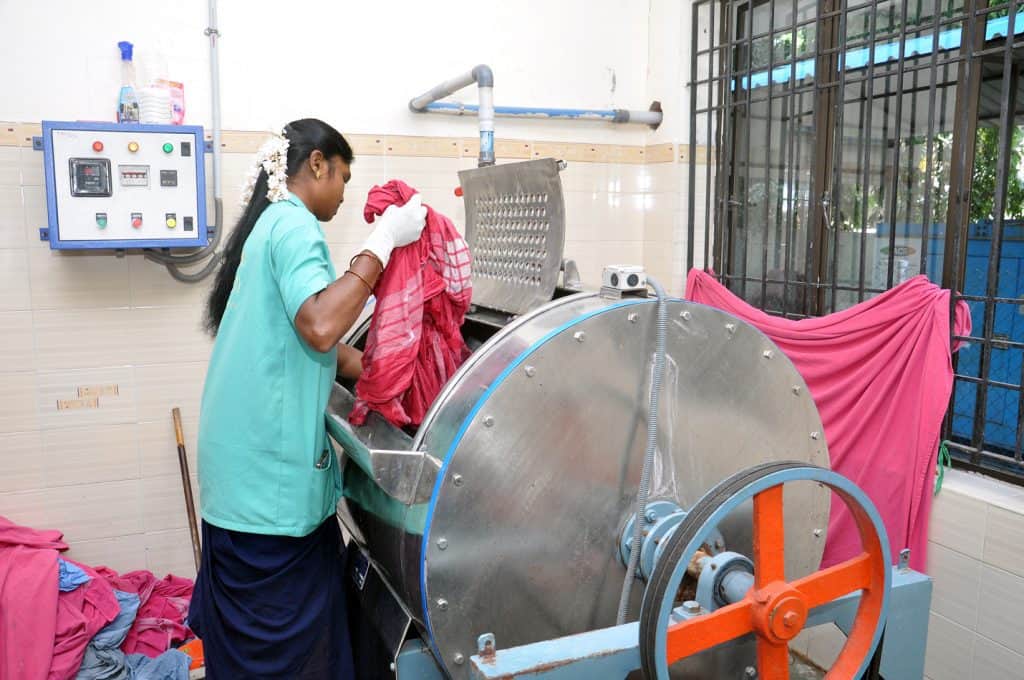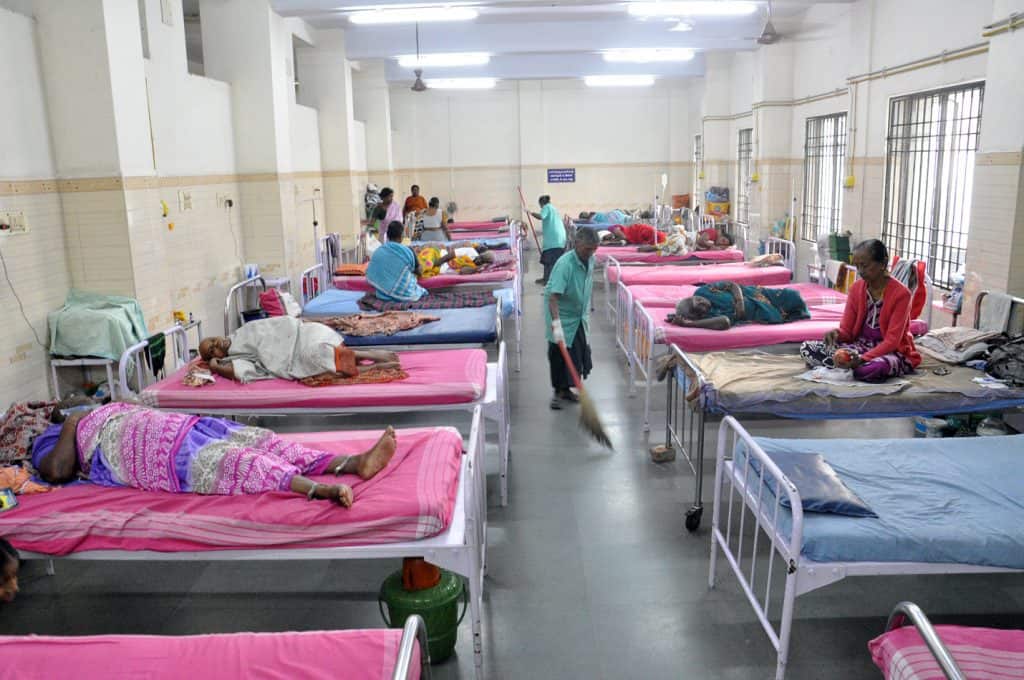Untidy wards, unsanitary washrooms and grimy surroundings — these may fit the common perception of government hospitals, but not the cancer block in Royapettah Government Hospital (GH). The 90,000 sq ft cancer block does not conform to the stereotypical image of any other government hospital in the city, thanks to one man’s obsession with hygiene. Meet Sekar Viswanathan, the founder of Viswajayam Foundation. Along with his team, Viswanathan has strived hard to bring about a fundamental change in the cancer block of Royapettah Government Hospital (GH).
A business development manager by profession, the 53-year-old Viswanathan has been serving the needy since the day he earned his first salary, and went on to establish his own trust, Viswajayam Foundation, in 2013.
Spark before the wave
Personal adversity often redefines an individual’s perspectives in life, and offers clarity of purpose. Something like that happened in Viswanathan’s life too.
“It was when we had a cancer patient in our family that we became extra conscious of hygiene and the ill effects of an unkempt environment. Seventy percent of the mortality rate of cancer patients in USA and Europe is because of secondary infections due to unhygienic surroundings. If that is the case in developed countries, we do not have to comment about India,” said Viswanathan.
During his visits to the Cancer block of Royapettah GH in 2012, Viswanathan understood that sanitation and proper maintenance were a big challenge for the hospital. “I decided to help through the foundation,” he recollected. “The patient tends to lose his/her immunity owing to the treatment, which makes them more susceptible to infections. But clean surroundings help in speedy recovery.”
“The government hospital is where the needy visit and hygiene is not given much thought. Of course it is undeniable, the in-house workers do clean, but hygiene is not just seeing a shiny floor through our naked eye. The floors must be bacteria-free even when observed under a microscope” said Viswanathan.
Five year journey to success
He started by offering part-time housekeeping services – five housekeepers who worked for eight hours – to just two floors of the cancer block. In no time, twelve-hour shifts were taken up, as the working area was expanded to the entire cancer block (ground plus five floors). In 2016, Viswanathan took a sabbatical from his work to focus on this and from 2017, the 18 employees of the trust have been toiling 24*365 to make the hospital look spic and span in all possible fronts.
“The General Hospital at Royapettah is one of the largest multispeciality hospitals in the city and its recently re-opened cancer block alone receives around 500 people everyday, against a surgical and other diagnostic capacity of about 200. There is a perpetual manpower crunch and strain on infrastructure. We trained our staffs in operating machines and sterilizing equipment and thus reducing the burden on the hospital staff. The patients are now able to get clean bed linens and well-sterilized equipment in operation theatres,” he added.
At present, the housekeepers from Viswajayam clean the washrooms six times a day and the wards four times a day. “The condition is far better when compared to the initial days. We do not expect much from the patients as they come from economically weaker backgrounds and we continue doing our service,” he said. Patients tend to litter, urinate on the beds and spit at times.
What makes them stand apart?
In 2015, the foundation started scouting for biodegradable cleaning products as they felt the use of chemical products is unsustainable and failed to provide satisfying results.
“To get 100% clean results we started experimenting with organic and biodegradable solutions. We are now using special disinfectant made of cow urine that can eradicate even superbugs. The chemical floor cleaner failed to do it. This has been double-checked with microscope and found to be effective,” says Viswanathan.
In addition, the team also manufactures sodium hypochlorite to use as floor cleaners, for which the machine was donated by Aarjati Foundation. This is used alternately with disinfectant made of cow urine donated by Sri Jayam Agro Agencies, to ensure the bacteria do not develop resistance towards the solutions.
“Sodium hypochlorite is widely used for disinfecting needles and not as floor cleaners. Bleaching powder is used predominantly in hospitals for cleaning purposes, care must be taken to ensure the powder is used within the permissible limits. Even a small amount of excess chlorine can bring side effects for the cancer patients. Sodium hypochlorite, that comes in the form of liquid is handy in such cases,” explained Viswanathan.
Plastic materials are everywhere and hospitals are no exception to this. Just like every other green champion, Viswanathan spoke to the workers about curbing the use of plastics. Sadly, his efforts did not bear fruit. Going further, he replaced plastic with stainless steel tumblers, plates and spoon for the patients. “The idea was to ensure patients do not ingest plastic materials. Unfortunately, the canteen in the hospital has not stopped using plastic” he rued.
Recognition and Dreams
For his untiring attitude in maintaining the Cancer block at GH, Viswanathan has been recognised and awarded by several organisations such as Kapaleecharam and Rotary Club of Madras Midtown.
With support from his kith and kin and like-minded donors, Viswanathan spends around Rs 1.60 lac per month, mainly on paying the salaries of the 18 employees. Viswajayam Foundation also offers financial support for education of meritorious students and medical treatment for people from weaker sections.
Together, the team completes five years of serving the patients of Royapettah government hospital in June. But Viswanathan does not stop there. He has an ambitious dream of initiating cancer screening service and housekeeping service for government hospitals in rural areas. He says service to society is not just about giving funds, rather people should come forward to spend their time and volunteer.
“I do not want to stop at expanding my own work, rather I want other people also to take up similar initiatives in whichever city they live. A week back, a visitor from Pondicherry, who read about my work, expressed his willingness to replicate the model at the Pondicherry Government Hospital,” commented Viswanathan. “This made my day.”
To share some love in the form of time and funds, reach Viswajayam Foundation at 93800 22773 / viswajayam.fn@gmail.com.

